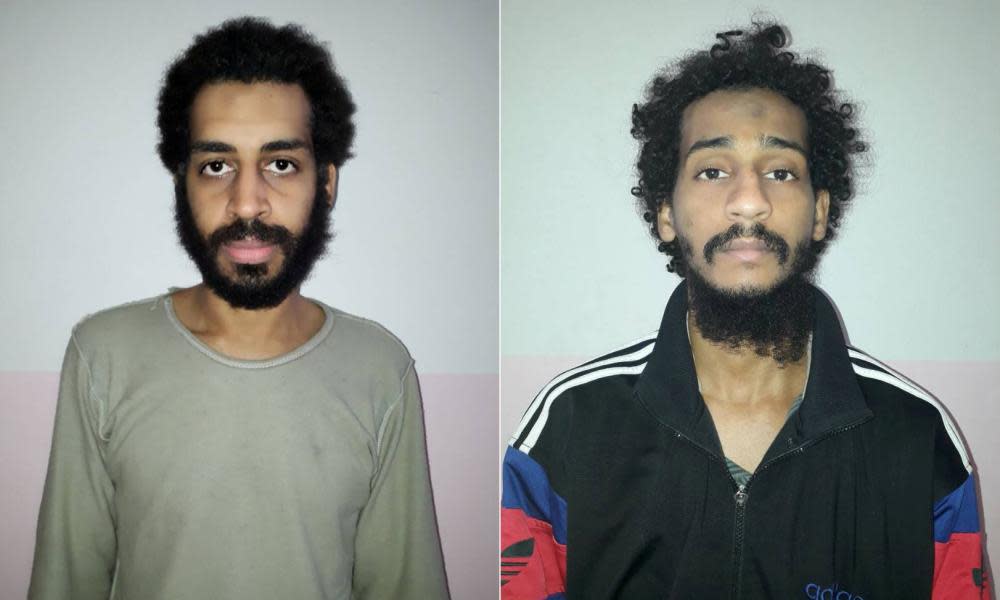Alleged Isis members can be tried in US after UK high court ruling

The prosecutions of two alleged Islamic State members accused of carrying out a series of beheadings can go ahead in the US after British officials handed over key evidence.
The material was given to Washington after high court judges sitting in London dismissed a challenge brought by the mother of one of the accused men.
Maha Elgizouli, whose son El Shafee Elsheikh is in US custody with his co-accused Alexanda Kotey, brought a judicial review of the decision taken by the home secretary, Priti Patel, in August to comply with a US mutual legal assistance (MLA) request for the material. She argued it was unlawful because it was incompatible with the Data Protection Act.
Elgizouli asked that the court order that no material be provided to US officials, who had already signalled their intention to prosecute. But, in their ruling delivered on Tuesday, Dame Victoria Sharp and Mr Justice Garnham said Elgizouli’s case was “not properly arguable”.
Speaking after the decision was made public, the Home Office confirmed that officials “have now transferred the evidence to support the US investigation”.
Last month, it emerged that the US attorney general, William Barr, had written to Patel assuring her the US would not insist on the death penalty for the pair.
The two men are accused of being part of a murderous four-man team known for their brutal treatment of captives and nicknamed “the Beatles” because of their British accents. One of the others, Mohammed Emwazi, was killed in a US airstrike in 2015 and the fourth, Aine Davis, has been jailed in Turkey.
At a hearing in London on 11 September, Elgizouli’s lawyers argued the evidence transfer was not necessary because the director of public prosecutions (DPP) was considering whether there was enough evidence to prosecute Elsheikh in the UK, which US authorities had previously said they preferred.
The judges said: “The conclusion that, even if Mr Elsheikh could be prosecuted in England, it would still be necessary and proportionate to transfer the data to the US authorities remained a conclusion properly open to the secretary of state.”
The hearing was held urgently as the US indicated it would transfer the pair to Iraq for trial if it did not receive all the evidence the UK has by 15 October. If found guilty there, the pair faced execution.
Sharp said the Crown Prosecution Service had concluded there was sufficient evidence to prosecute Elsheikh for terrorism-related offences, but that it required either the consent of the attorney general, Suella Braverman, or her permission for the DPP to consent to a prosecution.
The judge said the attorney general had indicated that it was “simply not possible to give an indication of timescale” as to when she would reach a decision.
The court previously heard there was a charging decision by the DPP in 2016, with the consent of the attorney general, that there was sufficient evidence to charge Kotey – whose whereabouts were then unknown – with five offences of murder and eight of hostage taking.
Elsheikh and Kotey, who were raised in the UK but have been stripped of their British citizenship, were captured by the Syrian Democratic Forces in January 2018, sparking an international row over whether they should be returned to the UK for trial or face justice in another jurisdiction.
They were transferred to the custody of the US military in Iraq in October 2019 and remain in American custody.

 Yahoo News
Yahoo News 
